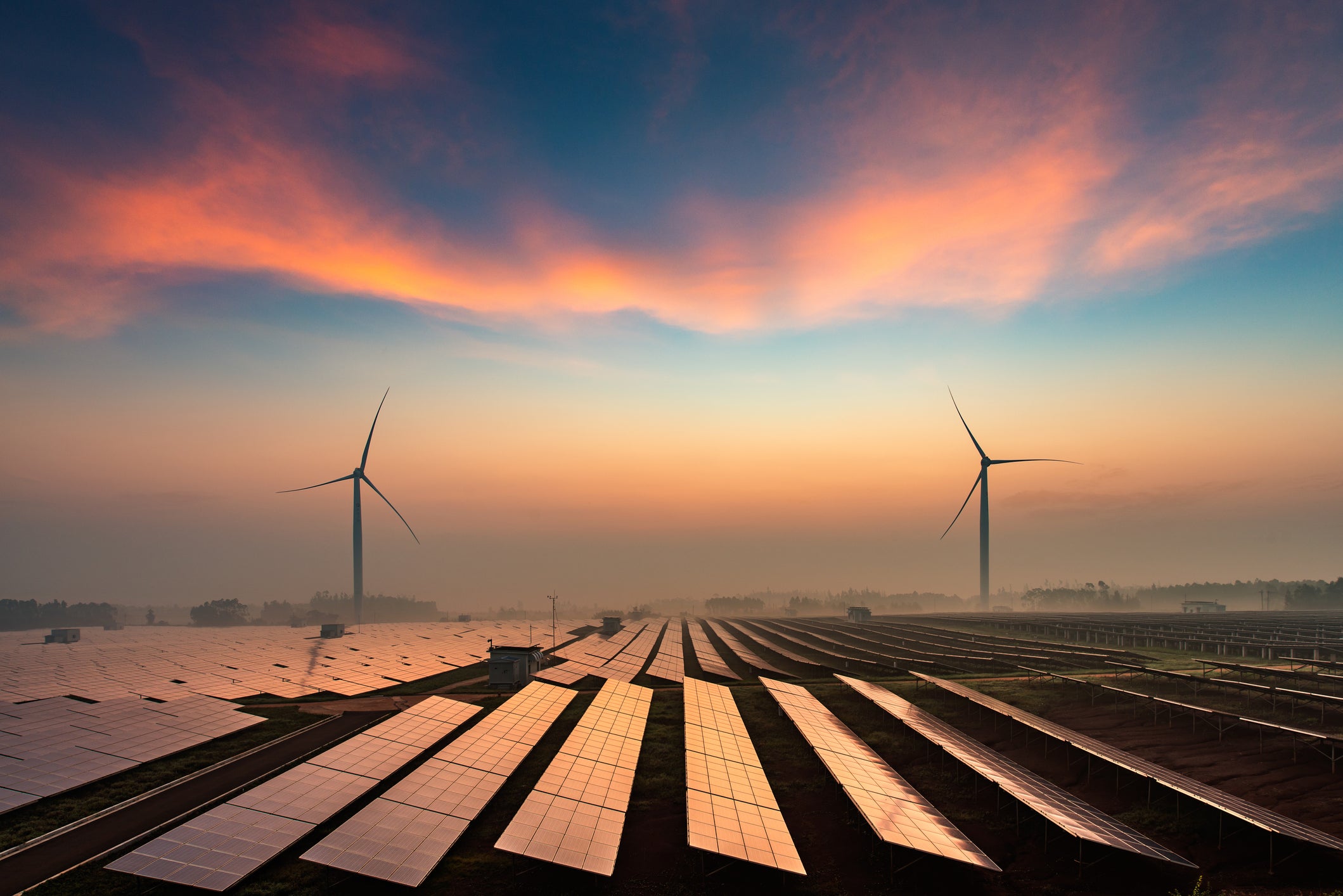Winning slowly is the same as losing – which is why we need a bold, capitalist solution to the climate crisis
Exclusive: Climate activist and entrepreneur Tom Steyer launches a mission-driven investment platform aiming to support companies with meaningful solutions to securing a livable future


Your support helps us to tell the story
From reproductive rights to climate change to Big Tech, The Independent is on the ground when the story is developing. Whether it's investigating the financials of Elon Musk's pro-Trump PAC or producing our latest documentary, 'The A Word', which shines a light on the American women fighting for reproductive rights, we know how important it is to parse out the facts from the messaging.
At such a critical moment in US history, we need reporters on the ground. Your donation allows us to keep sending journalists to speak to both sides of the story.
The Independent is trusted by Americans across the entire political spectrum. And unlike many other quality news outlets, we choose not to lock Americans out of our reporting and analysis with paywalls. We believe quality journalism should be available to everyone, paid for by those who can afford it.
Your support makes all the difference.The latest Intergovernmental Panel on Climate Change (IPCC) report confirms what climate activists already knew: we have a very narrow path to secure our future – and there are no second chances.
While it is critical for governments to pass comprehensive climate policies, securing a livable future requires massive support from the private sector.
It’s estimated that globally, over the next 30 years, we need to invest close to $4 trillion per year in energy transition technologies to secure a livable future.
Currently, we are investing just over $800 billion per year, leaving a $3 trillion gap annually.
Closing this investment gap is essential to avoid truly catastrophic damage, and neither philanthropy nor public sector investment alone will be sufficient to address this crisis.
We need everything: cross-industry cooperation and collaboration, philanthropy, and both public and private sector funding. I believe our best shot at accelerating the deployment of clean energy technologies and increasing the rate of decarbonization can best be described as Movement Capitalism.
Movement Capitalism is an economic philosophy that employs the foundations of capitalism – innovation, entrepreneurship, competition – and merges those with the power of global activism, in support of a higher public purpose.
The practice of Movement Capitalism involves not only generating profit, but also successfully addressing global challenges, such as the climate crisis. I co-founded Galvanize Climate Solutions to spearhead the use of Movement Capitalism.
Galvanize aims to provide significant private sector investment in climate-focused companies, and will serve as a space for private investors, activists and policy experts to work together, with each discipline informing the other.
Galvanize will prove that investing in the clean energy ecosystem works for the planet, and for its investors as well. We believe that as the value of clean energy investments shows up, the entire finance sector and business world will join the effort to accelerate the transition to clean energy. This is about more than one company; this is about transforming the entire private sector.
A core tenet of Movement Capitalism comes from approaching global problems comprehensively, evaluating how private investment, policy development and global activism can support one another to achieve impact at scale.
Galvanize aims to catalyze a virtuous cycle of coordination between innovative financial tools, policy development, and community engagement to ensure that the climate solutions and companies supported by Galvanize can reach scale as quickly as possible. Galvanize will also seek to facilitate the acceleration of broader climate systems changes, including government policies, by partnering and working with global policy makers and NGOs.
Through my work in the climate space for the last decade, I know that while significant private investment is necessary to fight this crisis, funding alone will not address concerns of equity.
As we begin imagining and developing a clean energy future, the equitable distribution of global climate transition impacts and benefits will be a core tenet of our decision-making and organization, guiding Galvanize’s structure, culture, investment strategy, and advocacy efforts.
Galvanize presents an opportunity to use the best of capitalism – innovation, entrepreneurship, competition – in service of the existential crisis of our generation.
By promoting competition and the prospect of commercial returns to accelerate the adoption of clean technology, we can begin to close the climate investment gap in pursuit of long-term sustainability. We are at a critical moment where the decisions we make today will determine whether we will succeed in securing a livable planet.
Time is of the essence, and everything is at stake; we must use every tool at our disposal to protect our planet before it’s too late. And as my friend Bill McKibben says, winning slowly is the same as losing.
Join our commenting forum
Join thought-provoking conversations, follow other Independent readers and see their replies
Comments